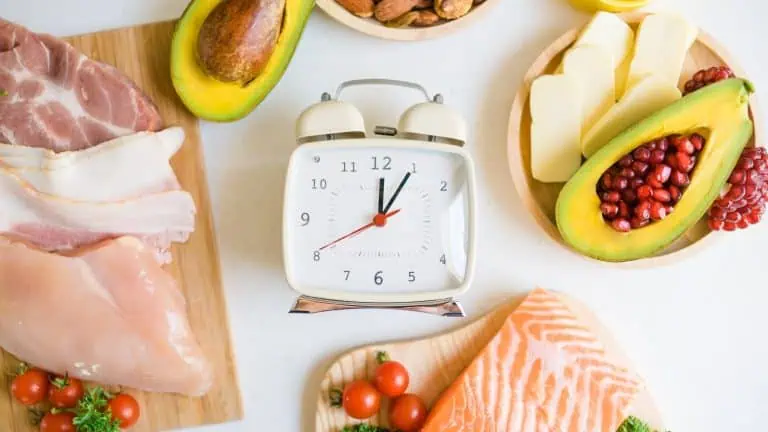
When you think about recovery, food probably isn’t the first thing that comes to mind. Most people picture therapy sessions, support groups, or the long work of rebuilding relationships and a new life.
Nutrition almost seems like an afterthought.
But food is more than fuel for your body. Think of it as holistic recovery nutrition. For someone healing from addiction, the right nutrition helps repair the body, calm the mind, and gives you the strength to stay on track during the hard work of recovery. Without it, progress can feel slower, harder, and less sustainable.
What addiction does to the body
Substance abuse and addiction change the way the body works — often in ways that aren’t obvious until someone stops using.
Alcohol, for example, interferes with how the body absorbs and stores nutrients. It depletes B vitamins, weakens the liver, and wears down the immune system. Opioids slow the digestive tract, which means food doesn’t break down properly. Stimulants often suppress appetite entirely, leaving people underweight and depleted.
By the time someone enters recovery, their body is often running on empty. They may feel constantly tired, anxious, or foggy. Sleep might be irregular. Skin, hair, and nails can look unhealthy. Even the brain, an organ that needs a steady flow of glucose, vitamins, and amino acids, struggles to regulate mood or focus.
The Canadian Centre on Substance Use and Addiction studies how malnutrition and substance use often go hand in hand, and how this worsens both physical and mental health outcomes. When critical vitamins and nutrients are missing from the diet, the entire body is thrown off balance, making recovery even more difficult to manage and sustain.
We’re here to help.
Contact us today for a no-obligation conversation with one of our professionals.
Why food matters in recovery
Recovery is all about repair. Therapy helps repair thoughts and behaviours. Relationships help repair trust. And nutrition? It repairs the body, mind and soul from the inside out.
When someone begins eating nutrient-packed, balanced meals, four key things happen:
- Energy levels rise
- Sleep improves
- Mood becomes steadier
- The brain gets the nutrients it needs to rebuild normal chemical pathways
Let’s not forget the psychological effect. Eating well is one of the most immediate and visible ways to practice self-care. Preparing a nutritious meal, sitting down to eat, and noticing how the body responds all reinforce the message: you are worth taking care of.
Health Canada connects mental well-being and nutrition as “what you eat impacts your mood, energy level, and even your productivity. The quality of your diet influences our moods, and there are psychological, biochemical and physical connections linking what we eat to our brain health.”
Key nutrients that help heal

Not every diet works for everyone, and recovery nutrition isn’t about rigid rules. Still, there are a few building blocks that show up again and again.
Protein and amino acids: These are the raw materials the brain uses to create neurotransmitters like serotonin and dopamine. Without enough protein, it’s harder to feel balanced or motivated.
Complex carbohydrates: Foods such as whole grains, beans, and certain fruits and vegetables provide the body with slow, steady energy, which helps avoid blood sugar spikes and crashes that can trigger mood swings or cravings.
Healthy fats: Omega-3 fatty acids, found in salmon, mackerel, and sardines, as well as in plant-based sources such as walnuts, flaxseeds, and chia seeds, have been linked to lower rates of depression and better cognitive health.
Vitamins and minerals: B vitamins for energy, magnesium for stress, zinc for immunity, vitamin D for mood and bone health — all of these can be depleted during substance use and need replenishing.
Hydration: It may sound simple, but staying properly hydrated is crucial. Many people in recovery are chronically dehydrated. Fluids help the liver and kidneys flush toxins and support every system of the body, from brain function to physical symptoms. Drinking two to three litres of water throughout the day is especially important during alcohol detoxification.
These nutrients don’t just make the body feel better; they also give the brain the tools it needs to stabilize thought patterns and support emotional recovery.
Food, mood, and the gut–brain connection
There’s another layer to all this: the emotional and psychological impact of food.
Many people in recovery find that cooking and eating become a connecting point in their day. Preparing food for others, or even sharing a meal in a treatment setting, helps rebuild social connections while sitting down to a meal is a small ritual that creates stability on the path to recovery.
Let’s talk about the science behind the gut–brain axis. That’s right, your stomach’s “gut health” is closely linked to your mood and mental health. A diet high in fibre, fruits, vegetables, and probiotics supports a healthy gut microbiome, which in turn helps with stress levels and emotional resilience.
Think of the proper diet as integrative therapy. When you start nourishing yourself with the right food, you start healing your body, mind and spirit.
Long-term benefits of proper nutrition

Recovery doesn’t stop when you finish detox or walk out the door of the centre. Some would argue, you’ve just begun.
Long-term recovery success depends on building daily habits that support the body, mind and spirit. Proper nutrition plays a key role in part of that foundation.
Eating well consistently can:
- Improve concentration and memory
- Boost immune strength
- Support better sleep and energy levels, making it easier to stay engaged in therapy or work
- And most importantly, lower the risk of relapse by reducing cravings and mood swings
Studies from the National Institutes of Health (NIH) suggest that individuals who improve their diet during recovery are more likely to maintain sobriety over time. While nutrition isn’t a cure on its own, it is a key component that makes every other aspect of treatment more effective.
Small, practical steps
For many people in recovery, overhauling their diet all at once feels overwhelming. The key is to start small and try to maintain regular meal times, rather than skipping them.
For example, a day making small steps might look like drinking a glass of water first thing in the morning before you have your coffee or tea, throwing in a handful of spinach to a fruit smoothie to get that one extra serving of vegetables a day, and reaching for a piece of fruit or a handful of nuts instead of munching on processed snacks.
If possible, working with a registered dietitian or nutrition professional can also help tailor a plan just for you. We’ve all got a body, but everyone’s body is different, and recovery nutrition should never be one-size-fits-all.
Over time, these small shifts add up. The body begins to repair, the brain regains balance, and the emotional toll of recovery feels a little lighter and brighter.
Healing from the inside out with Centres for Health and Healing
Recovery is never just one thing. It’s therapy, support, lifestyle changes, and often a complete re-thinking of how to live. Nutrition deserves a place high on that list.
At Centres for Health and Healing in Toronto, Canada, nutrition and healthy eating in rehab play a key role in our holistic approach to recovery.
While we understand food won’t solve every problem, it does provide the raw materials to boost healing. The proper nutrition can steady the body, strengthen the mind, and create a foundation for long-term health and wellness.
If you’re curious to learn more about how our individualized treatment programs can help you, please get in touch with one of our team members today.
We’ve been there, and we can help you get on the right path to healing.





